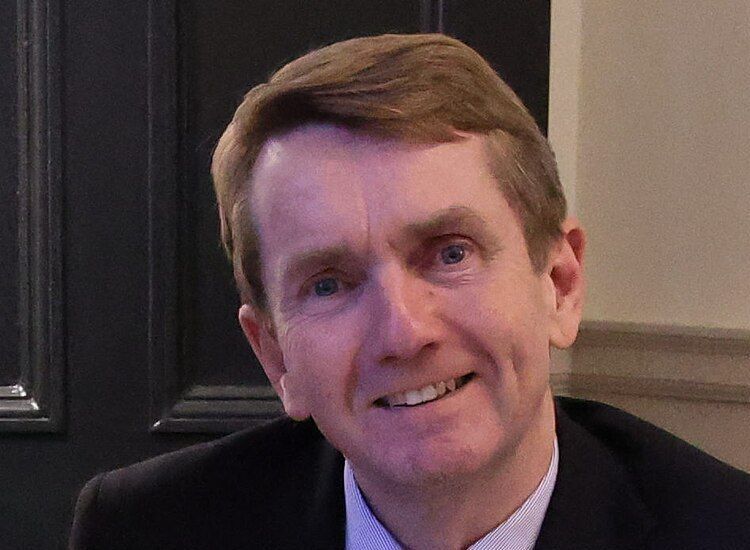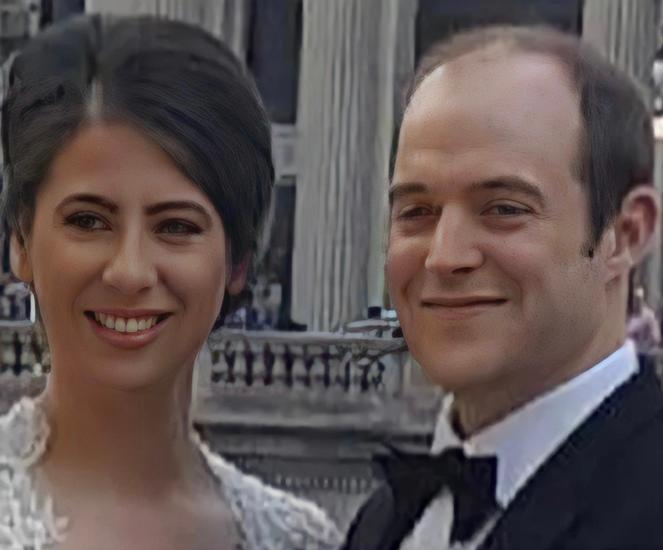Eggs and Soldiers” was shown at 45 festivals and broadcast on RTÉ in Ireland.
By Peter McDermott
It began with Jinty.
Imelda O’Reilly got her writing break from that London-published comic book for girls. She was thrilled, although the sterling amount on the check wasn’t much bigger than her age, which was 7.
Her destiny, it turned out, was to be in the visual arts, but not with comics. Instead, the Kildare-born poet and playwright has been making a name for herself in film and following the trail blazed by some of her heroes, like Agnès Varda, the doyenne of French cinema, and Ireland’s Neil Jordan.
O’Reilly, who divides her time between New York and Harrisonburg, Va., will spend 11 days networking at the Cannes Film Festival from May 8. Her film project “We’re the Kids in America” has been chosen as one of the 15 in the Cinéfondation L'Atelier for this year.

Imelda O'Reilly.
Since Cinéfondation was given this role in 2005 by the festival, according to its website, it has gotten funding for “202 projects, of which 145 have already been completed and 28 are currently in pre-production.”
“The odds are pretty good,” said Ireland’s representative O’Reilly.
“The filmmakers are selected according to the quality of their project and that of their previous films, as well as on the state of progress of their finance plan,” Cinéfondation says, “The program will enable them to gain access to international financing and speed up the production process.”
Cinéfondation pays their expenses, and in return the 15 filmmakers engage in an intense period of networking.
“It’s required,” O’Reilly said, referring to that part of the arrangement.

A scene from “Eggs and Soldiers,” which has led to
plans for a feature film, “We’re the Kids in America.”
Some of those selected are making their third or fourth feature, while for others it’s their debut. O’Reilly is in the latter group; she is, however, currently developing four features in all. One of them is an Irish thriller, “Beneath the Boy’s Cry,” on which her former professor at Columbia University, Barbara Da Fina, is executive producer. (Da Fina was a producer on “Goodfellas” and other movies directed by her ex-husband Martin Scorsese.)
“Barbara read the script and really liked it,” O’Reilly said.
The Kildare woman is also at work on “Article 475,” a thriller set in Morocco (where she made her 2009 short film “Bricks, Beds and Sheep’s Heads”), and an animated feature “Emilita and the Asian Glen.”
For now, though, getting European financing for “We’re the Kids in America” is her focus. It grew out of her short film “Eggs and Soldiers,” which was shown at 45 festivals and broadcast on RTÉ.
The script for the feature, which won a Moving Picture Institute Screenwriting Fellowship, tells the story of three generations of the one family– and is set in the 1950s, the 1980s and the present day. She describes it as a triptych, a term mostly associated with painting. It’s a format rarely used in cinema, but O’Reilly said that the 2016 Academy Award winner for Best Film, “Moonlight,” could be said to be a triptych.

Imelda O’Reilly making adjustments to the
script on the set of “Eggs and Soldiers.”
The graduate of the MFA program in film from Columbia must also juggle her academic commitments with her artistic career. She is currently an assistant professor at James Madison University in Harrisonburg. She previously spent three years in Singapore as an arts professor in the Graduate Film Program for New York University TischAsia under its artistic director Oliver Stone and has taught at Barnard College, Hunter College and the School or the Visual College.
The well-traveled O’Reilly visited the Cannes Film Festival in the south of France once before, 20 years ago; she was a young poet living in Paris at the time. But her festival debut as a filmmaker was a decade later at the Créteil International Women's Film Festival, in the capital’s suburbs. Somewhere in the festival’s archives, she said, there is a 30-minute filmed interview with her about her work.
“I was really impressed with how the French treat artists,” O’Reilly said.









